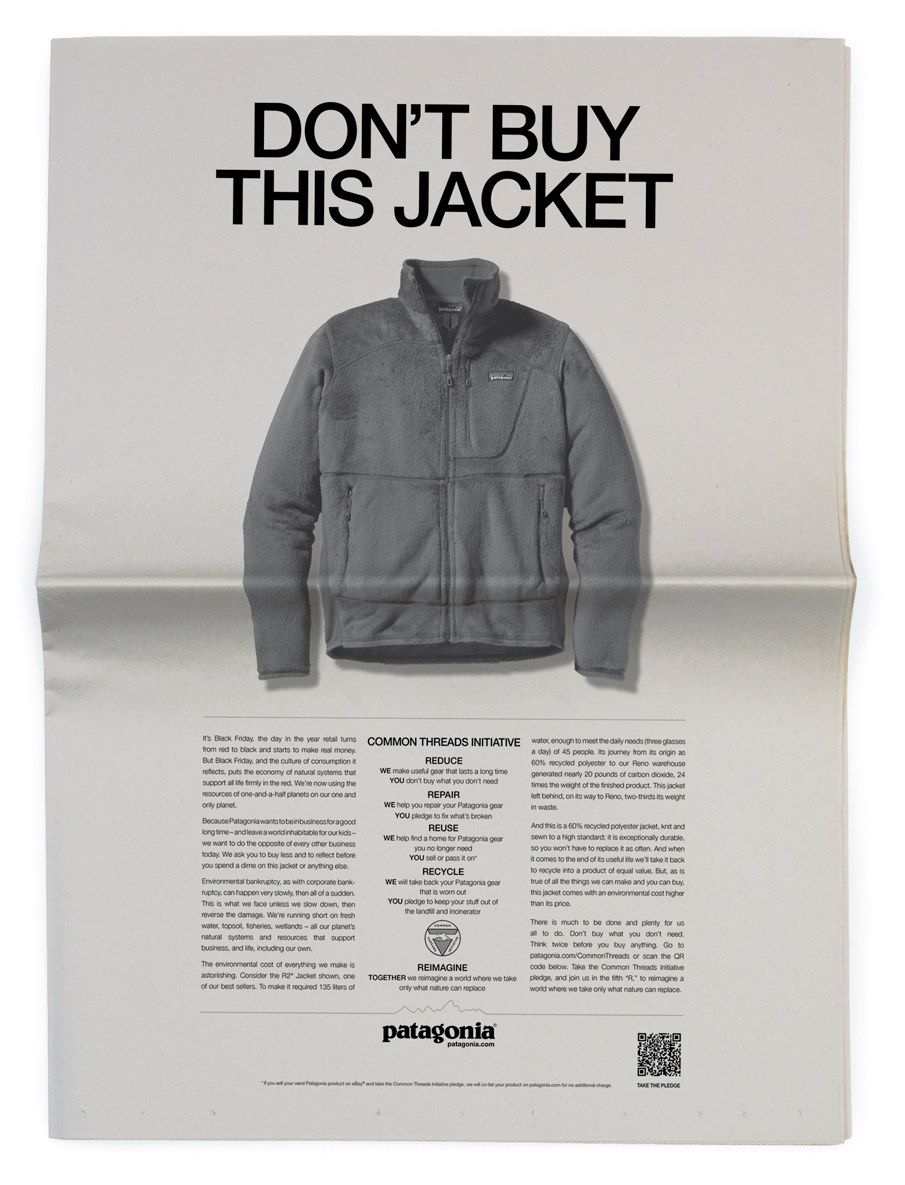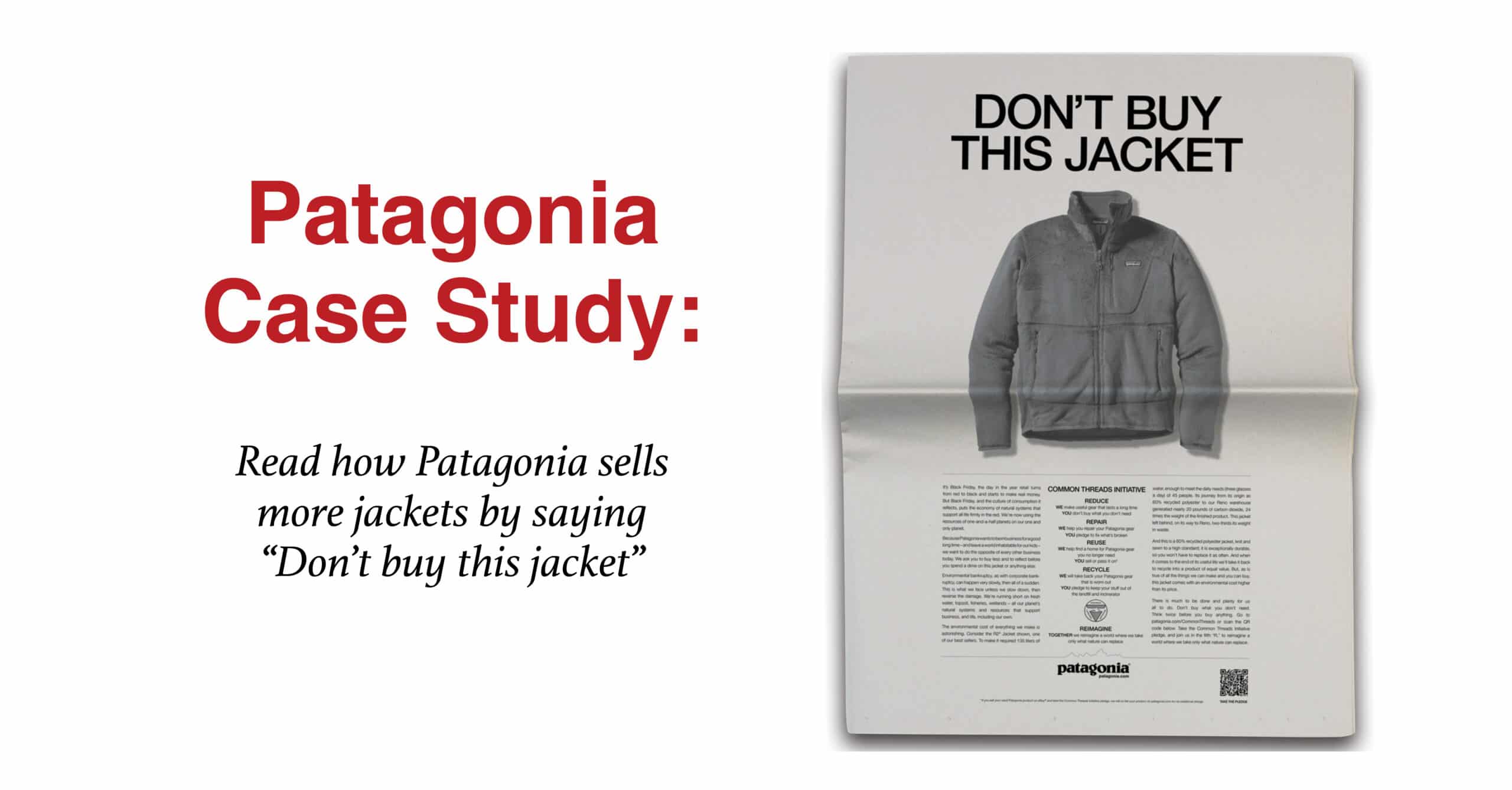Buy better, buy less
What does the future of business look like?

Climate change is by far the most important and worrying force of change that we as a collective society will need to solve in the decades ahead.
Just like covid-19, it's a problem that belongs to all of us.
The guaranteed disruption to life in the future, because of climate change will not discriminate between the rich or poor, developed world or developing world.
It's a problem that we all know, needs solving quickly.
Interestingly though, climate change is a symptom of a deeper human behavioural condition that very few voices, who are vocal on the issue, appear to be recognising or addressing head on.
Climate change is a problem of over consumption and the unconscious normalisation of an endless stream of cheap consumer products and stuff to buy, made profitable for faceless shareholders by massive global value chains that leverage unthinkable efficiencies and scale to manifest economic growth thanks to a pervasive consumer mindset or hyper-consumption.
Climate change is the result of the world's obsession with buying too many cheap things that we don't need.
When politicians and economists get excited about GDP growth, that growth comes as the cost of the environment. When you hear '5% GDP growth', be sure to hear too the between-the-lines-story of the untold destruction of the natural world as a result.

Cheap food, cheap clothing, cheap toys, cheap cosmetics, cheap products that literally would not exist if the global machinery that allows them to be financially viable did not exist.
Reversing climate change will not be an outcome that will be realised thanks to the same machinery-of-scale and hyper-consumption mindset suddenly now making use of 'sustainable materials'.
ESG policies (as nice as they may sound) will not also reverse excess consumption and magically return the world back to some kind of chilled, community-driven equilibrium.
The challenging solution to the problem is a collective global realisation that the current metrics of success that we all blindly follow (shareholder value, profit and growth) are the exact drivers that are producing the problem.
The solution is a recognition that the 1972 publication The Limits to Growth wasn't some hair-brained, hippy suggestion, but an accurate warning and recommendation.
If buying a lot of stuff is the problem then the solution is not to buy the same quantity of stuff - just made differently, but rather to simply buy things that are made to last, and be wanted, for a long time.
The logical is simple - if everyone bought good quality, well-design, locally-made products that were produced by businesses that were structured to be sustainable rather than generate excess profits for anonymous shareholders, you would have no more climate change problem.
Patagonia is one brand that realises this - famously encouraging people to not buy anything (including their products) on Black Friday if they don't really need to.
What does this then mean?
What this means is that climate change is an issue that will very much affect the business model of every organisation in the future.
Consumers are wising up and choosing to buy differently.
If your business model is premised on growth, scale, efficiency, low-cost supply chains and low margins - you will find it increasingly difficult to hit your agreed targets and you may find that more and more consumers will turn their backs on your brand and your exploitative approach. Nike and Apple might be able to weather these kinds of PR-storms better than most because of their size, but the backlash for small organisations could be fatal.
Reputations will be brought into question and brands will fall in value.
Capitalism and climate change are interconnected - as pressure mounts on the one, so too will it increase on the other.
It's time to start exploring alternatives futures today.



